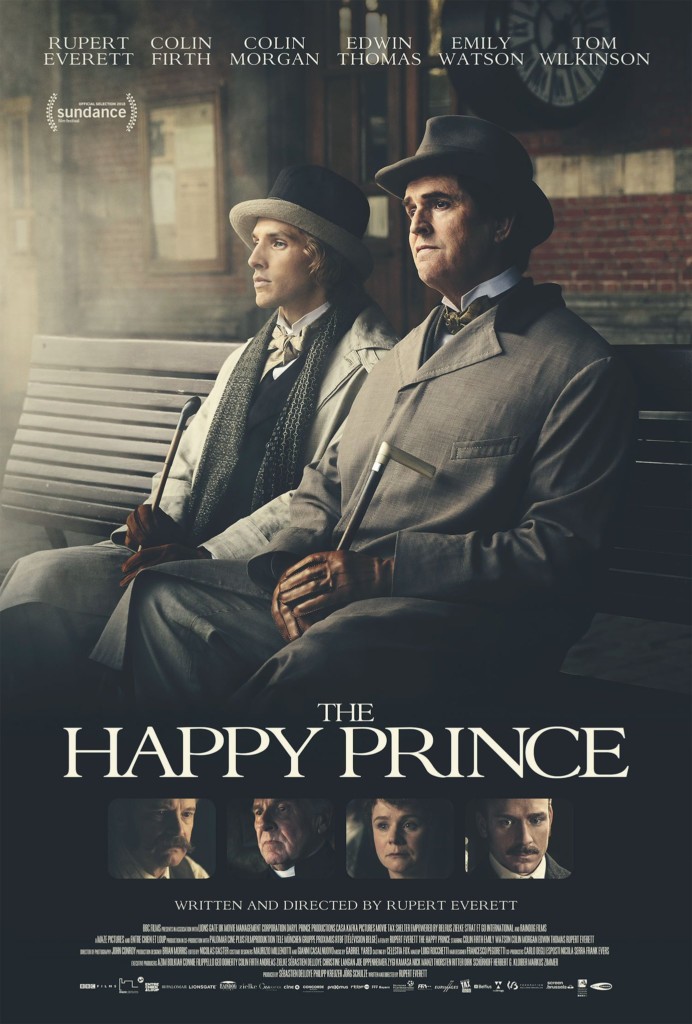The Happy Prince

The Happy Prince
There is a new film about Oscar Wilde – The Happy Prince currently in cinemas. It is a wonderful portrayal of the literary genius, but desperately sad. Oscar is played by Rupert Everett, who extends the character he played not so long ago on stage in “Judas Kiss”. Wilde was an obvious genius whose fall from favour and grace was spectacular only in its indictment of Britain then.
As we all know Wilde was a married man, who was also homosexual. These days it is hard to fathom how this is either anyone else’s business (though of course our culture remains just as preoccupied with what happens out of sight) let alone how this detracts from his obvious literary accomplishments.
In this portrayal, Everett makes plain the self—destructive path of addiction. In this case Wilde’s frankly inexplicable addiction to the loathsome Lord Alfred “Bosie” Douglas (Colin Morgan). It is his inability to manage his feelings and actions which lead him to penniless ruin, living in the squalors of Paris.

Self-Destruction
Whilst much has changed in society since the life and times of Oscar Wilde, one cannot fail to realise that whatever the form an addiction takes, it has the capacity to lead to ruin. There are moments in the film in which Wilde’s friends Reggie Turner (Colin Firth) Robbie Ross (Edwin Thomas) and wife Constance (Emily Watson) all urge him to take a different path, to forget the selfish indulgence of Bosie. Yet knowing the consequences of being financially cut off, Wilde follows his self-destructive desires all the way to the grave.
Drama, Drama
We are all prone to addictions… how is that smartphone addiction? Or perhaps an addiction to the media? These may seem like rather innocuous addictions, with little apparent consequence, certainly unlikely to suffer illness or death, yet there is growing evidence that many are suffering from an overload of information, a sense of powerlessness and being overwhelmed in a world that appears outside of our control…
When it comes to investing, our addictions to the news and perhaps following the markets are likely to cause us to make poor decisions. Responding and reacting to “the news” yet this invariably has little to do with our own lives and financial plan. Chasing the illusive winning funds is a habit that many have developed. Yet the reality is that we can control very little, but what we can control, we do indeed need to focus on.
Don’t make a crisis out of a drama
Attempting to time the market, second guess the best performing funds or shares is nothing short of speculation, it is not a proper investment strategy. It is a very good way to run out of money and the FCA recently produced a report outlining the errors of holding too much cash in a pension fund. Presumably investors do so because they don’t trust pensions, the market, advisers or all of those them and simply attempting to time the opportune moment to invest. This, it has been found leads to dramatic underperformance and penury.
Here is the trailer for the film.
Dominic Thomas
Solomons IFA
You can read more articles about Pensions, Wealth Management, Retirement, Investments, Financial Planning and Estate Planning on my blog which gets updated every week. If you would like to talk to me about your personal wealth planning and how we can make you stay wealthier for longer then please get in touch by calling 08000 736 273 or email info@solomonsifa.co.uk